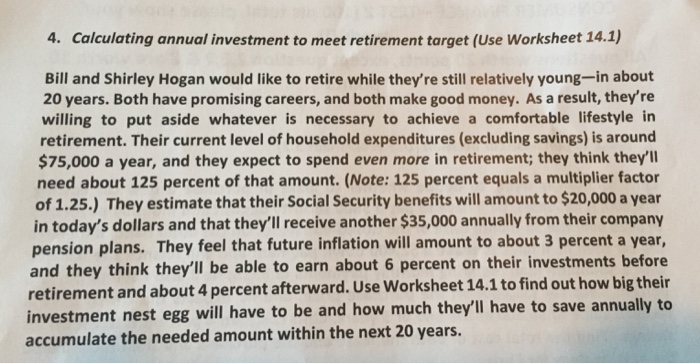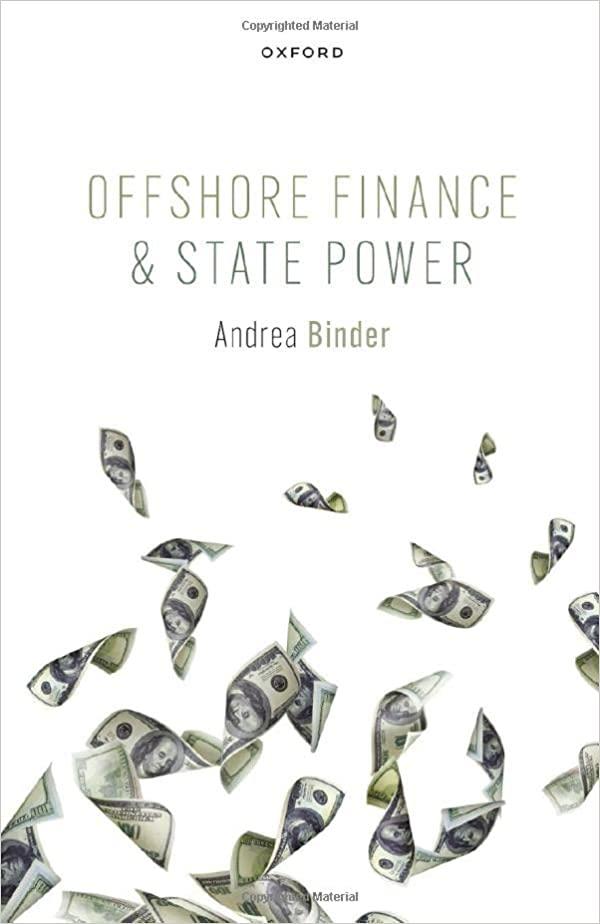4. Calculating annual investment to meet retirement target (Use Worksheet 14.1) Bill and Shirley Hogan would like to retire while they're still relatively young-in about 20 years. Both have promising careers, and both make good money. As a result, they're willing to put aside whatever is necessary to achieve a comfortable lifestyle in retirement. Their current level of household expenditures (excluding savings) is around $75,000 a year, and they expect to spend even more in retirement; they think they'I need about 125 percent of that amount. (Note: 125 percent equals a multiplier factor of 1.25.) They estimate that their Social Security benefits will amount to $20,000 a year in today's dollars and that they'll receive another $35,000 annually from their company pension plans. They feel that future inflation will amount to about 3 percent a year, and they think they'l be able to earn about 6 percent on their investments before retirement and about 4 percent afterward. Use Worksheet 14.1 to find out how big their investment nest egg will have to be and how much they'll have to save annually to accumulate the needed amount within the next 20 years. 4. Calculating annual investment to meet retirement target (Use Worksheet 14.1) Bill and Shirley Hogan would like to retire while they're still relatively young-in about 20 years. Both have promising careers, and both make good money. As a result, they're willing to put aside whatever is necessary to achieve a comfortable lifestyle in retirement. Their current level of household expenditures (excluding savings) is around $75,000 a year, and they expect to spend even more in retirement; they think they'I need about 125 percent of that amount. (Note: 125 percent equals a multiplier factor of 1.25.) They estimate that their Social Security benefits will amount to $20,000 a year in today's dollars and that they'll receive another $35,000 annually from their company pension plans. They feel that future inflation will amount to about 3 percent a year, and they think they'l be able to earn about 6 percent on their investments before retirement and about 4 percent afterward. Use Worksheet 14.1 to find out how big their investment nest egg will have to be and how much they'll have to save annually to accumulate the needed amount within the next 20 years







